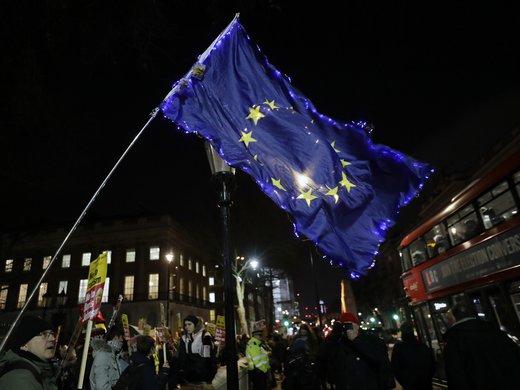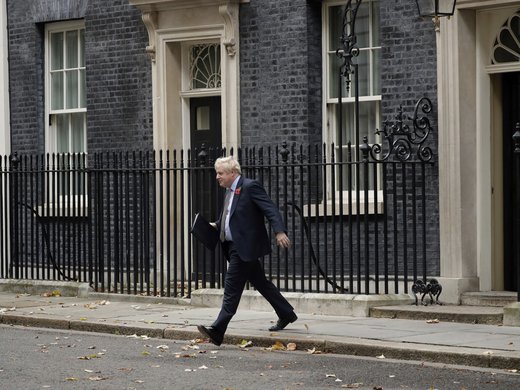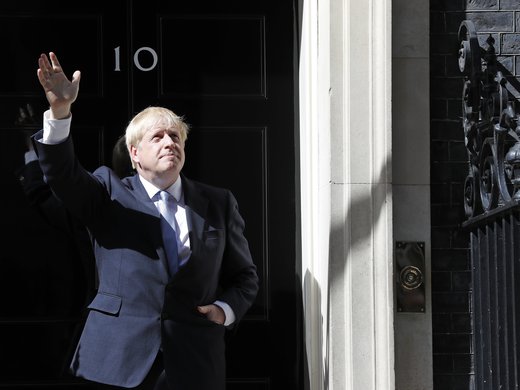With Britain considering a referendum on European Union membership the focus shifts away, temporarily, from worries over the euro zone’s own myriad challenges (not to worry these will return in the spring when growth in the euro zone fails to return and we edge closer to a German federal election). The response on the part of EU politicians has been reasonably diplomatic, with no threats or counter-threats being made (so far, but it's early days). On the positive side, the speech by British Prime Minister David Cameron has once again raised the age-old issue of the extent to which the EU is a vehicle for closer cooperation, and in what sense, among the existing member states of the EU (with nations in waiting wondering what kind of entrance requirements await them), as opposed to a political project to create a "more perfect union."
At the risk of oversimplification, recent events reflect a revival of the historic pull and push between those who dream of a federal style Europe, while others view its chief innovation as the creation of a large single market. The euro is but one vehicle that provides the incentives to "stay in this together" and may be viewed as, arguably, the most important symbol of the "irreversibility" of European cooperation. In any event, the debate between the federalists and their opponents continues, exacerbated by the financial crisis and policy makers’ and politicians’ responses.
Reacting to the proposal for a referendum on EU membership, Lord Mandelson, former EU Trade Commissioner, argues that “Sorry, with rights come obligations – the EU is not a cafeteria service in which you arrive with your own tray and leave with what you want.” (“Cameron remains in need of an EU plan”, January 23, 2013). Perhaps. It seems to me that the EU does in fact resemble a cafeteria at times but where, in the last few years, the food has gotten worse and the service has deteriorated considerably.
The EU is a cafeteria because, over time, countries, notably the UK, has received permission to "opt out" of important EU institutions, such as the euro ,while not participating in certain common arrangements that other EU members have adopted, such as membership in the Schengen zone, which facilitates the movement of individuals across countries by doing away with border crossings. The UK, of course, is not the only EU member state with "opt-outs." Several others (e.g., Denmark, Poland, and others) benefit from exceptions to various rules or common arrangements. Then there are the "enhanced" provisions in EU treaties, which allow groups of countries to cooperate in certain areas more closely than other members might be willing to do. The recent enhancement to the Stability and Growth Pact, and the inability to get firm commitments from all EU members about a EU-wide banking union, are just recent examples of members selectively deciding what they wish to participate in and on what terms.
Therefore, not only do we face problems with the operations of the euro zone, away from the headlines for the time being, a reflection of the built-in economic weaknesses in this part of the world, but we see the other weakness of the EU, as a political entity, rearing its head once again. Just as the architecture of the euro zone is in need of repair, so do EU member states have to decide whether they want to improve the service inside the cafeteria, or close it down altogether (the most extreme outcome). This means eventually deciding whether the EU is a political project or a purely economic arrangement.
An improvement in service might require a form of outsourcing, whereby France and Germany cease to make all the major decisions about the future of the EU and provide the opportunities for all members to fully participate in the EU experiment. Needless to say, with 27 members and a rough few years behind them, this will not be easy. At the same time it is useful to remember that the history of the EU is often one where two steps forward are taken soon followed by two steps back. While the number of steps forward over the decades has been positive, this has largely been thanks to a few with a vision and the ability to convince the public to follow a dream. For the time being such individuals appear to be in short supply.


